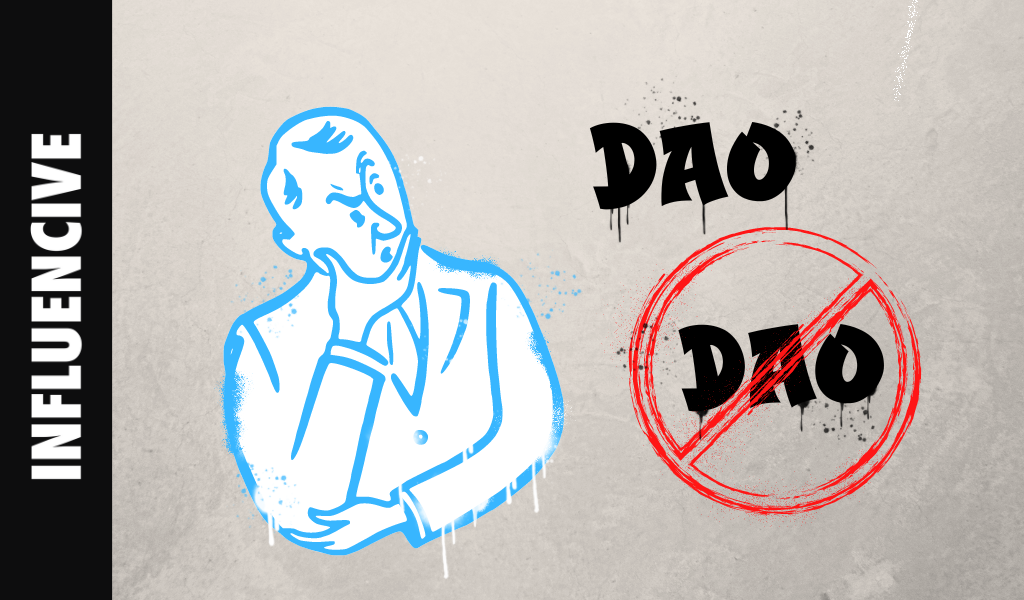A decentralized autonomous organization (DAO) is an open-source way of organizing that is run through smart contracts. The main goal is to institute a democratic way of running an operation that allows all members to participate in the direction of the project or group. Typically, a group comes together with common goals, and they lay out the rules of the group in smart contracts. The smart contracts operate on a blockchain and allow for intervention and changes without direct management of the group.
DAO members can typically interact with each other securely, while also having their individual interests represented in a way that cannot be altered or manipulated. There are numerous reasons to use a DAO structure. The community driven code of ethics seems to be the one that drives most to form one. The actual use cases for DAOs are still growing as this type of entity is in the experimental phase. The popularity of the concept has caused DAOs to pop up all around the globe. But not every project needs to be a DAO and in fact there are some limiting features to be aware of.
What are the PROs of Forming a DAO?
Managing an online community or large organization is difficult. There will always be someone who wants things to work or happen differently, which means there will always be someone who is unsatisfied with a chosen direction. DAOs allow for democratic and transparent management of online communities. In the case of large groups or organizations that want true decentralized community management, a DAO is certainly an option.
When a proposal is made for a change to the structure or operating procedures, a DAO allows for built in and fast voting. Voting is done digitally, and members are allowed a certain number of votes. Anyone with a stake in the DAO can participate in the decision-making process. DAO voting is usually gated to the members wallet, so voting is as simple as connecting a wallet and casting a vote. Voting off-chain is typically cumbersome and can take an extreme amount of effort and resources to collect and count. Then there is the inevitable hanging chad, where votes come into question anytime human involvement is inserted into the equation. So DAOs certainly have a boost for voting within organizations.
In DAOs with large communities or membership, the ability to vote creates a sense of ownership and commitment. Members can be incentivized for participating in the process. In addition, members who do not want to participate can also delegate their vote to someone who has their best interest in mind. This leads to long-term viability of the project as choices are made by the group giving a sense of ownership to the members.
Not all organizations should form a dao
Because the DAO is bound by a set of rules that are written in code, changes require majority voting. As in any large structure, some may actually not understand the changes that are needed for the group to reach their goals. This can lead to a deadlock in progress as needed upgrades might go unpassed. Not all organizations are meant to be held up on progress by needing to wait for each member to understand the importance of new directions.
DAOs also lack centralized control systems which is usually considered a good thing in the emerging popularity of decentralization. But if you have a vision or an idea, and then you form a DAO, you are giving the control of that vision to the community. This could turn out fine, but also has the potential to kill the project. Some things are better left in control of the visionaries.
Large companies and organizations often need to pivot on a moment’s notice. Market conditions may change, or public opinion may falter. Swift and decisive action may be needed to save a company. This will not easily be accomplished with a DAO that has structures in place that require voting on spending and changes.
Whether or not your company should form a (DAO) depends on a variety of factors, including the size and scope of the company, its goals and objectives, and the level of decentralization you wish to achieve. Communities are forming DAOs around a wide range of concepts, including investments, management of other blockchain-based projects, and content production. If your company is looking to adopt a fully decentralized approach, or to increase the decentralization of its operations, a DAO could provide a useful structure. It is important to consider the potential costs, legal considerations, and technological requirements associated with forming a DAO before making any decisions. DAOs are an innovative way of structuring a group and their popularity is well founded. Understanding the needs of your project in conjunction with the limitations in these types of organizations is vital to making the decision to DAO or not to DAO.
Opinions expressed here are opinions of the Author. Influencive does not endorse or review brands mentioned; does not and cannot investigate relationships with brands, products, and people mentioned and is up to the Author to disclose. Accounts and articles may be professional fee-based.

